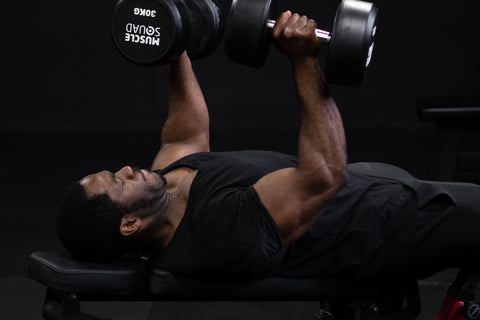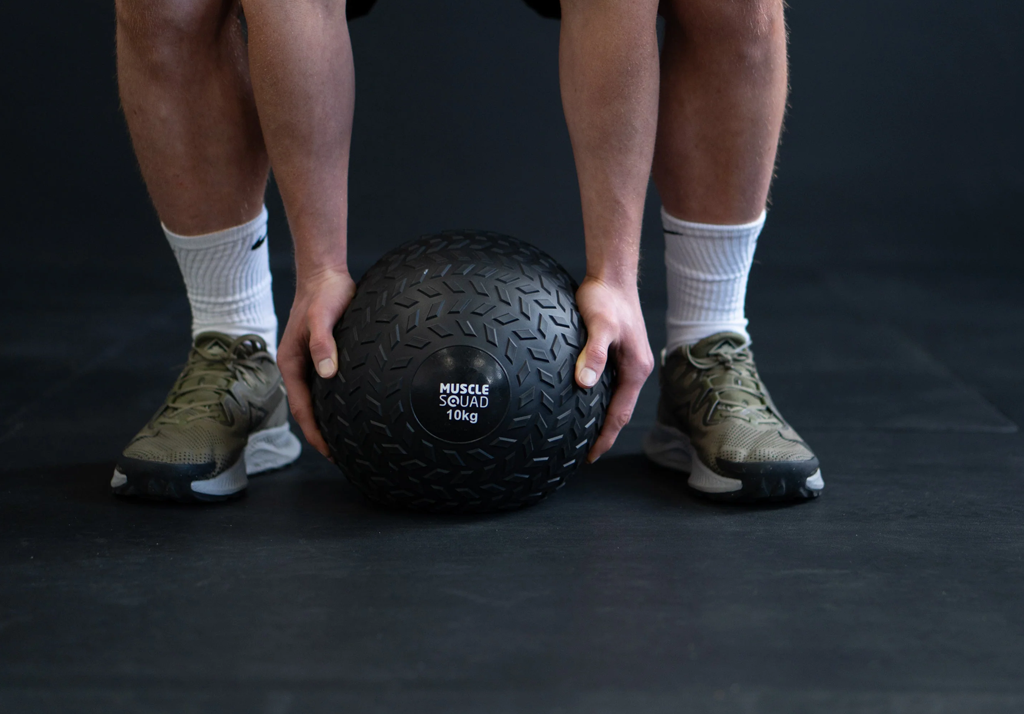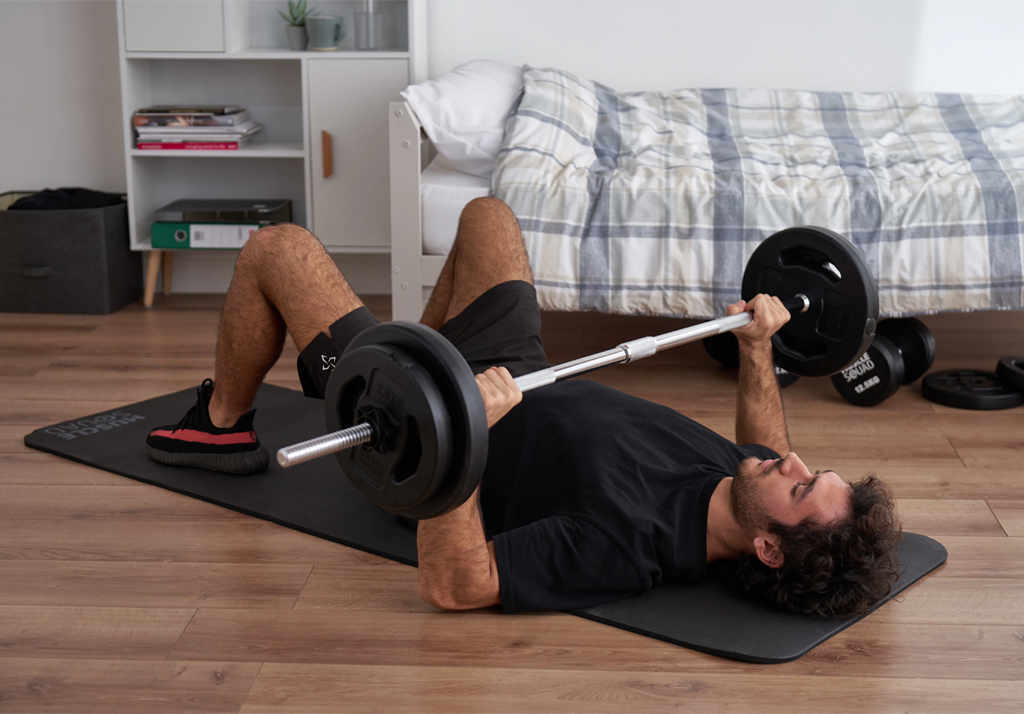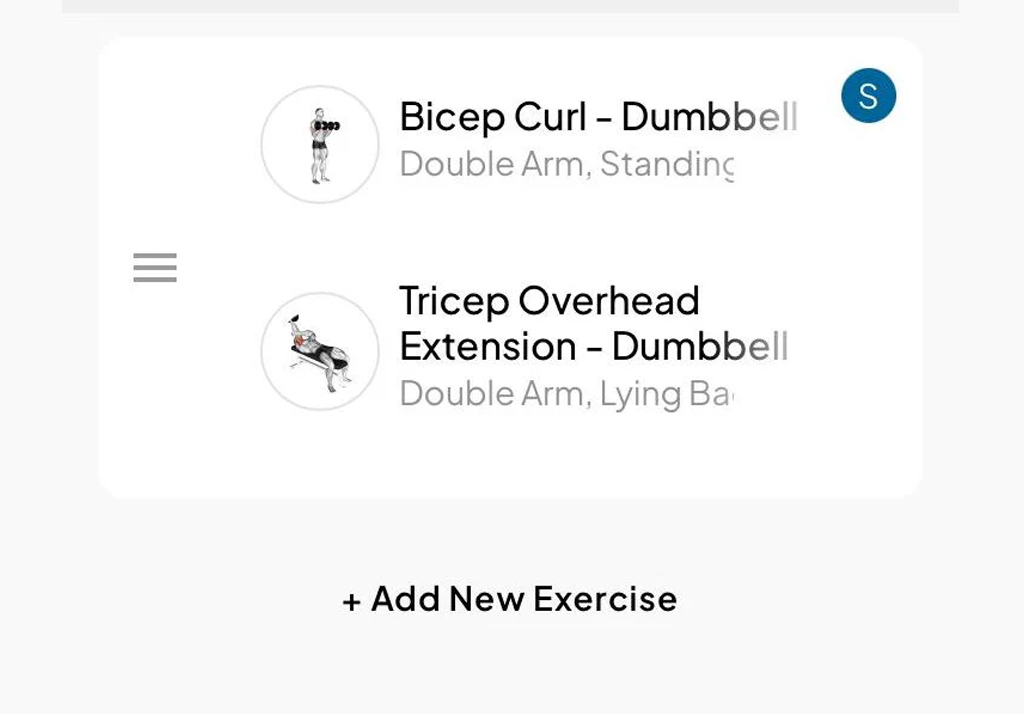Progression in any pursuit is never linear. At the start of any journey you're bound to see constant improvement which makes maintaining motivation easy; there's instant gratification on a regular basis.
But, as enjoyable as the good times are, that explosive growth will eventually come to a halt as you reach your first plateau. It's in these moments where discipline is crucial. It's important to stay positive even if your progress has slowed.
In this post, we'll talk about what that looks like in strength training and give you five methods to fight the inevitable plateau and return to that glorious forward-momentum period.

What are the signs that you have begun to plateau?
First, how do you know that you have begun to plateau? Before you can overcome a plateau, you must be able to recognise it. The faster you recognise the issue the sooner you can begin to make the adjustments that will help you overcome it.
The first sign of plateauing is a lack of progression even if your lifting schedule has stayed the same. If you've been trying to lose or gain weight, but that scale is remaining stubbornly in the same place, it's likely that you need to switch something up in your training to get it moving in the right direction again.
And if you're not tracking your bodyweight or whichever key indicator tracks your goals, then now is the time to start. It's much easier to fix an issue when there's data behind it.
Besides a lack of physical progress, it's important to ask yourself some questions. Do you feel less motivated to train? Are you becoming bored of training? On the verge of or experiencing burnout? These are very common signs of being in a plateau, so if you answered yes to any of those questions it may be time to take corrective action.
5 ways to break through a training plateau
1.) Change exercises or try different exercise variations
Changing the exercises you perform on a regular basis can give your muscles new stimulus and help you break through a plateau. Let's say you've been bench pressing for the last year as your primary chest movement and have reached the point where you're no longer progressing.
You could try incorporating close grip bench press into your routine to strengthen your triceps in case that's the body part holding you back.
Alternatively, you could start adding dumbbell press to your workouts which puts load on your arms individually and strengthens your stabiliser muscles and shoulders. After a period of training a different variation, the gains you've made here will eventually transfer over to other movements — like the conventional bench press in this example.
2.) Switch up your training volume
One of the most effective ways to overcome a plateau is to increase your training volume. This means doing more sets, reps, exercises or reducing the rest time between sets.
Here's another practical example: you are shoulder pressing 25kg dumbbells overhead for 7-8 repetitions and have been stuck on this weight for a few months. You could drop down to 20/22.5kg and try to increase your overall reps and focus on working at a higher rep range.
Now with this focus on getting as many reps as you can, if you hit 11 reps one week with the 20kg weights try to get 12 the next week. Keep moving up your rep range and after a few weeks try returning to those 25kgs. You'll have built up a higher muscular endurance and might find it easier to push past that previous 7-8 rep barrier.
3.) Take a rest day for recovery
Rest days give your muscles time to recover and repair after a workout. It is important to note that rest days do not mean you have to sit on the sofa all day. Active recovery, such as gentle stretching or low-intensity activities like yoga or walking, help promote blood flow and speed up recovery. It's important to listen to your body, ultimately. If you're feeling tired or sore, consider taking an extra rest day to allow your body to recover fully.
4.) Review your nutrition and hydration
Nutrition plays a critical role in supporting health and well-being, which means it's crucial to your performance in the gym. If you're struggling to progress in your lifting, it may be time to review what you are putting into your body.
Hydration is also key, so ensure that you're consuming enough fluids. Try switching up the way in which you consume meals, too, in case that's holding you back. You may be eating a big meal too soon before your training session, which may bloat you and negatively impact your workouts. Giving yourself an extra hour or 2 to digest your food can make the world of difference in your performance.
5.) Consult a qualified professional for advice
If you have been stuck in a plateau for a while and have exhausted the different methods of breaking out of it, then it may be time to seek advice from a professional trainer or coach. They can evaluate your current workout routine, identify areas for improvement and create a structured plan to get you back in that progression zone. If you feel your issues are in the nutrition department, then speak with a nutritionist.
If your problems are on the mental side, then it might be worth seeing a sports psychologist that can help you work through any barriers in your head. Athletes across disciplines regularly see sports therapists to help them maintain their very best form.
Summary
It's important to understand that hitting plateaus is inevitable in any progress-driven goal and is nothing to feel ashamed about. Reaching your first plateau is a milestone and can be a time to celebrate your progress so far and acknowledge how far you have come.
While hitting a plateau may feel discouraging, it's an opportunity to re-evaluate your goals and adjust your approach. The most crucial factor is your perseverance, so do not give up on yourself. Keep pushing and be mindful of how you can switch up your current schedule. You've come this far; it's no time to stop now.
Stay the course.

 Mar 16, 2023 - JY Sharif
Mar 16, 2023 - JY Sharif





1 comment
May 30, 2023 • Posted by Malick
I highly appreciate you for sharing this “Changing exercises, you perform can help give your muscles new stimulus and break through a plateau. For example, let us say you have been bench pressing for the last year, as your primary chest movement and you have reached the point where you have stopped progressing in the bench press. You could try incorporating close grip bench pressing to help improve your regular bench, close grip bench puts emphasis on your triceps which can help strengthen them more than the standard bench press.” Interested people can search here for fitness-related products. https://www.maskura.co.uk/collections/fitness
Leave a comment: